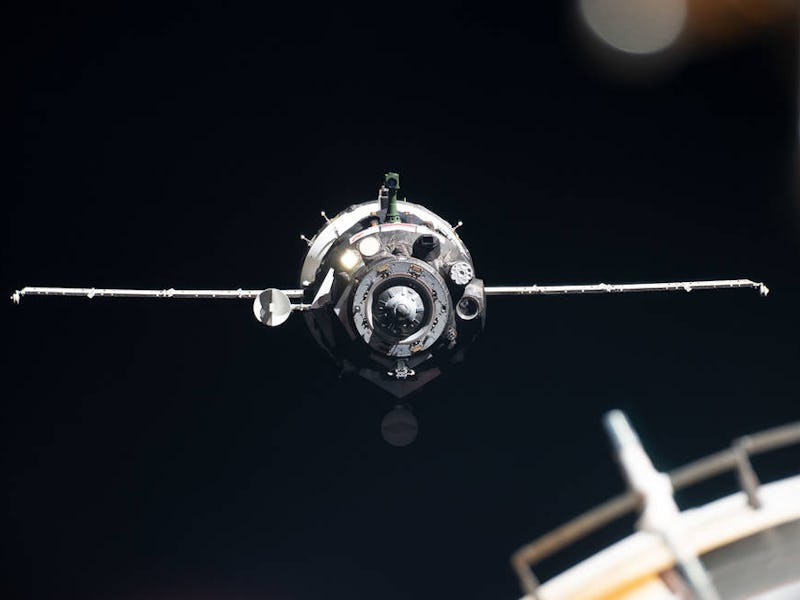NASA schedule: 4 events you won't want to miss in February 2020
A much-anticipated return to Earth and three landmark launches mark NASA's February 2020 calendar.

From a spacecraft getting up close and person with the Sun, to new communications satellites being launched into orbit, these are the NASA events you don't want to miss for February 2020.
February 6: Expedition 61 astronauts return to Earth
After spending 328 days onboard the International Space Station as part of Expedition 61, NASA astronaut Christina Koch is returning to Earth alongside two crew members, European Space Agency astronaut Luca Parmitano and Russian cosmonaut Alexander Skvortsov.
The three are due to leave the space station on February 6 aboard a Soyuz MS-13 spacecraft. They are scheduled to land back on Earth in Kazakhstan, at around 4:14 a.m. Eastern.
In the course of the expedition — which happens to be her first mission to space — Koch broke the record for longest spaceflight by a female astronaut. She has orbited around the Earth a total of 5,248 times during the mission, according to NASA.
You can watch the Soyuz MS-13 undocking from the space station live on February 6 here.
February 6: Expedition 62 begins
With the end of Expedition 61, Expedition 62 will officially get under way. This mission involves NASA astronauts Andrew Morgan and Jessica Meir, as well as cosmonaut Oleg Skripochka.
Both Morgan and Meir have been on the space station since mid-2019. Soon they will be joined by NASA's Christopher Cassidy and two more cosmonaut crew members, who are due to launch into space in April 2020.
You can keep up-to-date with the latest onboard the ISS by following Meir on Twitter. Here she is with Morgan working on one of the ISS' many scientific instruments.
February 9: NASA Solar Orbiter launches
Together with the European Space Agency, NASA is set to launch a mission to the Sun on February 9 that will bring us closer to our host star than any other spacecraft before it. To get there, the Solar Orbiter will hitch a ride onboard a United Launch Alliance Atlas V rocket, which is currently scheduled for lift off from Cape Canaveral Air Force Station in Florida on Sunday during a launch window that opens at 11:03 p.m. Eastern.
The Solar Orbiter will get as close as 0.27 AU from the Sun's surface — around 26 million miles — with the goal of helping solve some unresolved questions regarding space weather and how the Sun controls the environment around it.
Solar Orbiter will be heading towards the Sun this month.
The spacecraft will essentially stare down at the Sun’s magnetic poles, and capture the south and north poles from a high altitude for the first time ever.
February 9: Space Station resupply launch
Also on February 9, NASA's commercial partner Northrop Grumman will launch a resupply mission to the ISS from NASA's Wallops Flight Facility in Virginia. The launch is scheduled for 5:39 p.m. Eastern.
To celebrate the launch, Northrop Grumman has named their craft after Robert Henry Lawrence Jr., the first African American astronaut.
Lawrence standing next to an F-104 Starfighter.
The craft will arrive at the ISS on February 11, 2020.
The mission will carry some important scientific experiments with it.
Among them are the Mobile Space Lab, which enables scientists onboard the space station to culture tissues and cells quickly and efficiently. These experiments are key if we are to understand how life in microgravity affects human health — and how to help mitigate these effects.
There is also the Mochii instrument, which is a mini scanning electron microscope. The microscope will help identify small particles — which will prove crucial to keeping crews safe, NASA says. The particles can cause equipment on the station malfunction.
Another is OsteoOmics — an experiment designed to measure and study the loss of bone density in space. Understanding how space affects bone health could help develop ways to counter any ill-effects, safeguarding the human body for longer space flight.
The fourth scientific experiment going up is Phage Evolution. This one looks at phages, which are viruses that destroy bacteria. It is designed to look at the affect of microgravity on phage-bacteria interactions — knowledge that again may prove critical for human spaceflight.
Last but not least, the craft will carry the Spacecraft Fire Experiment-IV. As the name suggests, it is designed to study how fires start and spread aboard spacecraft — more essential knowledge that can enable future human explorations in space, and guarantee our astronauts' safety.